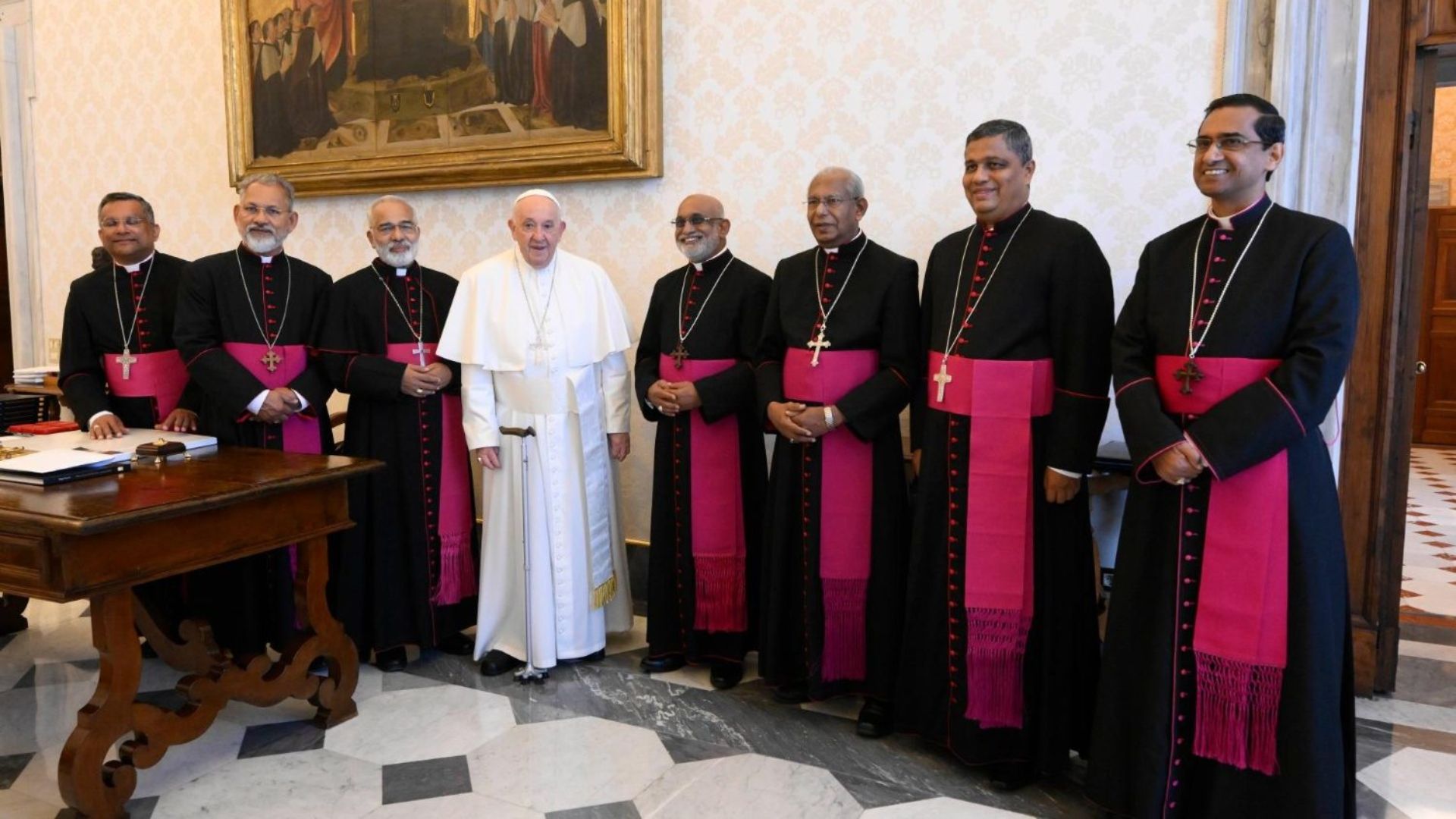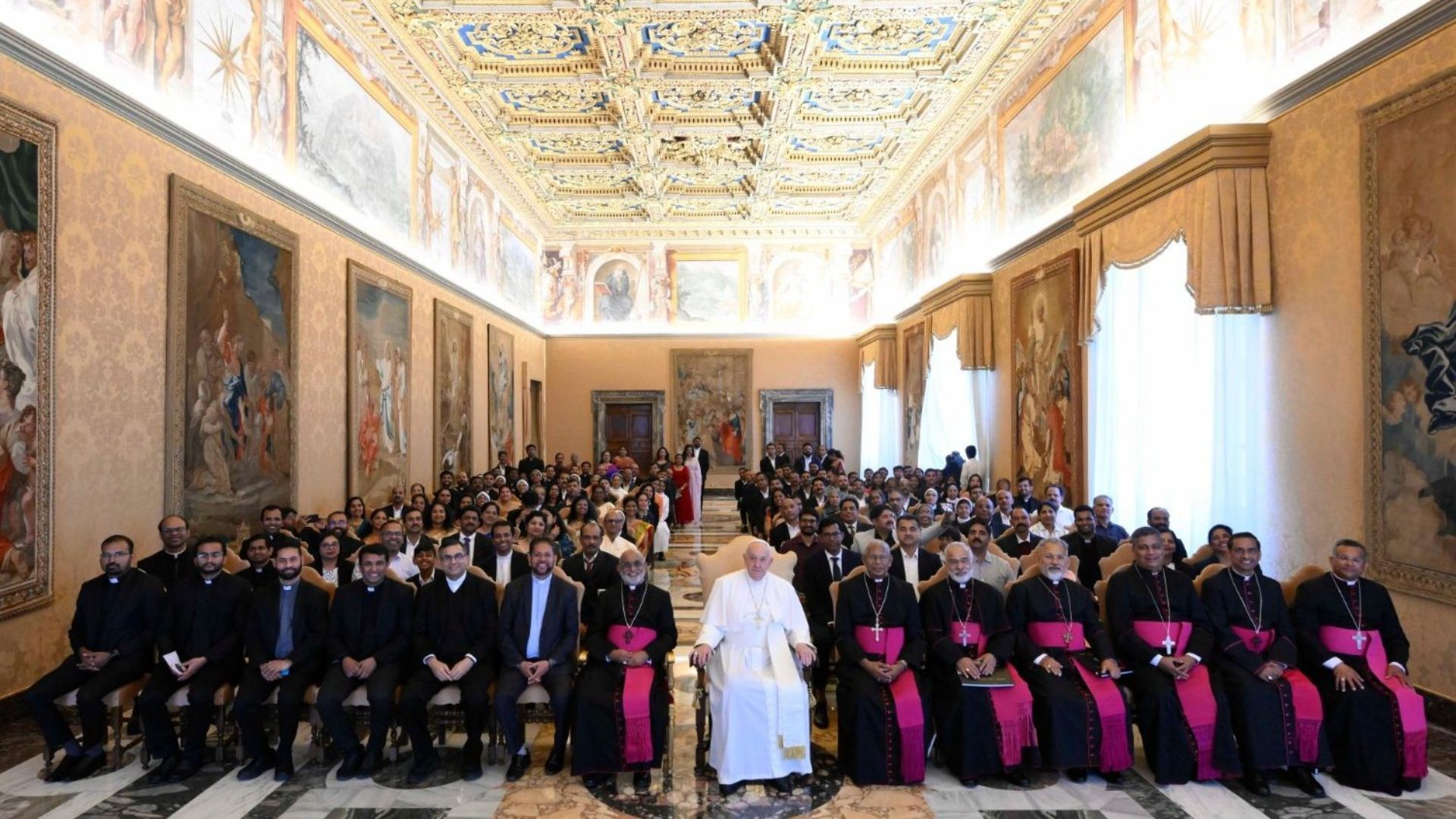Vatican City – His Holiness Pope Francis today, 13th May 2024, granted the right to the Syro-Malabar Church to exercise jurisdiction on her migrant Syro-Malabar Catholic faithful in the Middle East.
The landmark announcement was made by the Holy Father in his address to the Major Archbishop Raphael Thattil, the head of the Syro-Malabar Catholic Church.
Pope Francis met with the Major Archbishop and the Synod of Bishops of the Syro-Malabar Church on Monday morning.

In his address the Holy Father emphasised on the rich tradition of the Syro-Malabar Church and the need to transmit this tradition to her children which is fully possible with jurisdiction.
“The Christian East allows us to draw from ancient and ever new sources of spirituality; these become fresh springs that bring vitality to the Church. It is, therefore, good for me, as Bishop of Rome, to encourage you, the Syro-Malabar Catholic faithful, wherever you are, to cultivate the sense of belonging you have to your Church sui iuris, so that your great liturgical, theological, spiritual and cultural heritage may shine ever more brightly. I also told His Beatitude to ask for jurisdiction with regard to all your migrants in so many parts of the Middle East. I said that they have to ask for jurisdiction in writing, but I have given it today and they can already exercise it. This has to be put in writing, but again, as of today, you can exercise it. I wish to help you, not supersede you, because the nature of your Church sui iuris empowers you not only to examine carefully the situations and challenges that you face, but also to take appropriate steps to address them, with responsibility and evangelical courage, remaining faithful to the guidance of the Major Archbishop and the Synod. This is what the Church wants, for apart from Peter, apart from the Major Archbishop, there is no Church.”
The Pope’s address to Major Archbishop Thattil ranged over a number of topics, from the ancient history of the Church in Kerala to the liturgical dispute which has been raging there for a number of years.
An ancient history
Pope Francis began his address by reflecting on the ancient faith of the Syro-Malabar Church.
“The faithful of your beloved Church”, he said, “are known not only in India, but throughout the whole world, for the ‘vigour’ of their faith and piety.”
Referring to the fact that, for many years, Western missionaries attempted to force Kerala’s Christians to conform to European traditions, Pope Francis said that “some members of the faith” committed “unfortunate acts against you”, because of their “insensitivity” to the history of India’s ancient churches.
The Syro-Malabar Church, the Pope added, is particularly important today, in times where it is common to “sever the roots connecting us to the past.”

Unity and obedience
Referring to the ongoing liturgical controversy, the Pope said that he had “recently sent letters and a video message to the faithful, warning them of the dangerous temptation to focus on one detail.”
This danger, he said, comes from “a self-referentiality, which leads to listening to no other way of thinking but one’s own.”
And it is here, the Pope warned, that “the devil creeps in”, aiming to undermine Jesus’ desire that we, his disciples, “be one” (John 17.2).
“For this reason,” Pope Francis stressed, “guarding unity is not a pious exhortation but a duty.”
And, he added, “showing a grave lack of respect for the Blessed Sacrament …by arguing about the details of how to celebrate the Eucharist, the pinnacle of [Jesus’] presence among us, is incompatible with the Christian faith."
Pope Francis brought his address to an end with a reflection on the encounter of St Thomas – who had doubted the resurrection – with the Risen Jesus.
Jesus, the Pope recalled, showed himself to Thomas, and invited him to inspect the wounds he had received while on the cross.
“What amazement must have seized the Apostle Thomas as he contemplated them and saw his doubts and fears vanish before the greatness of God! It is an amazement that generates hope, an amazement that prompted him to go out, to cross new borders and to become your father in faith. Let us cultivate this amazement of faith, which enables us to overcome every obstacle!”